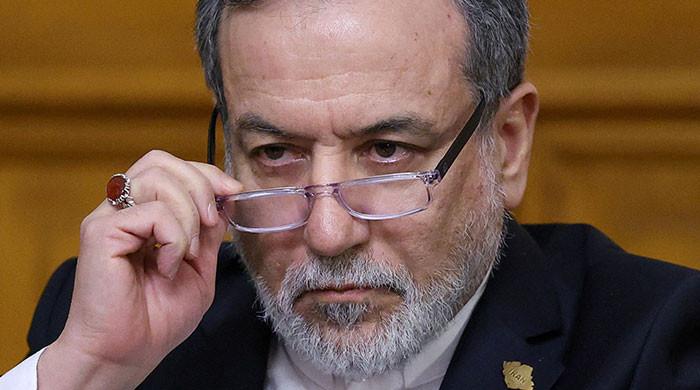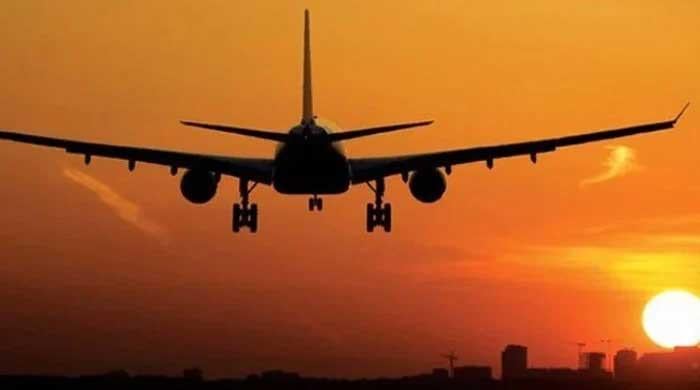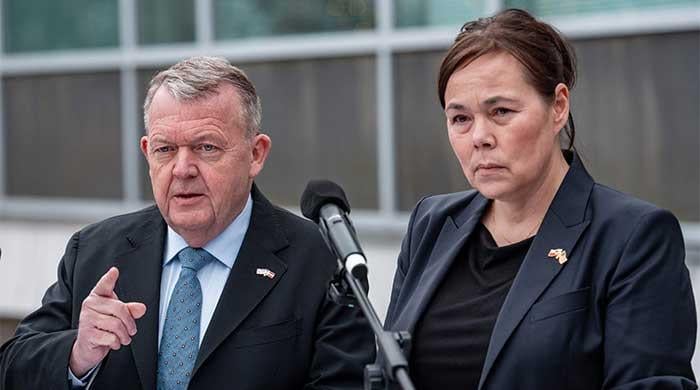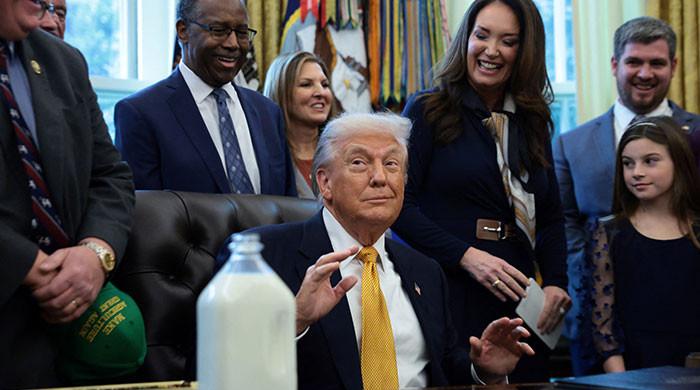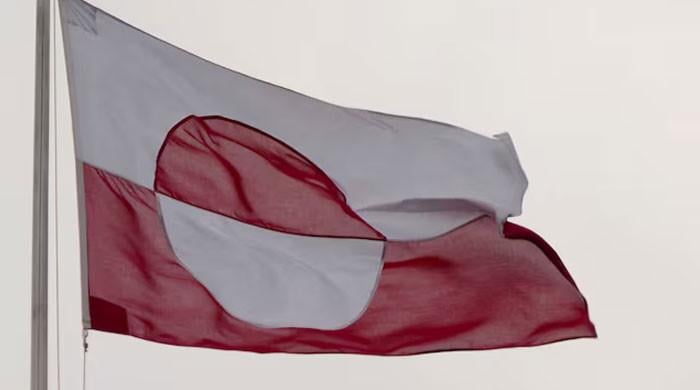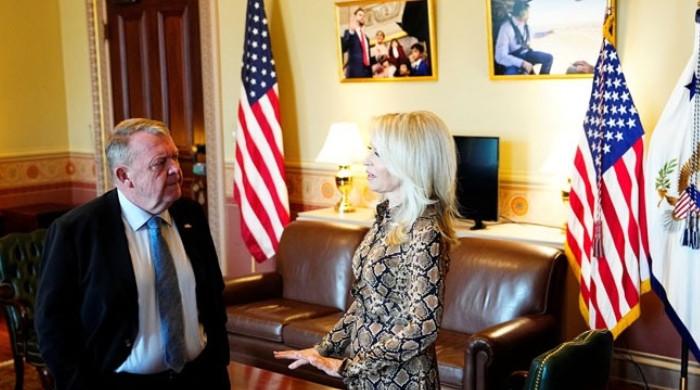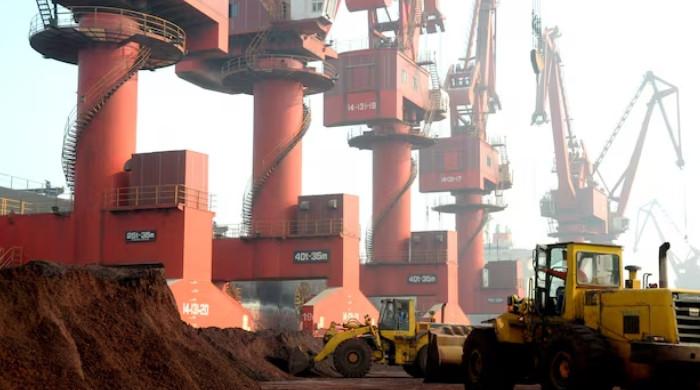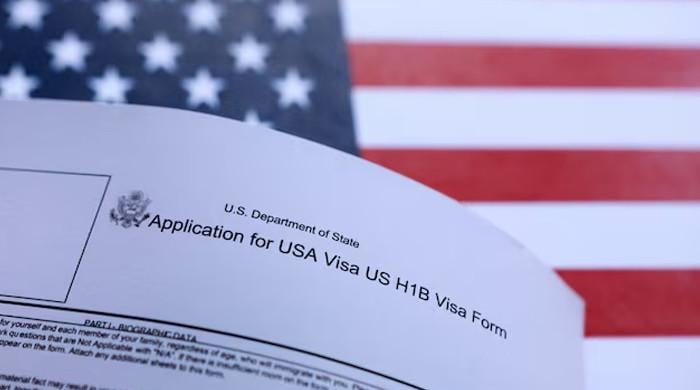Trump to ask Supreme Court to save tariffs but faces tough legal questions
US president warns of "devastation" if duties he imposed under IEEPA are struck down
September 03, 2025
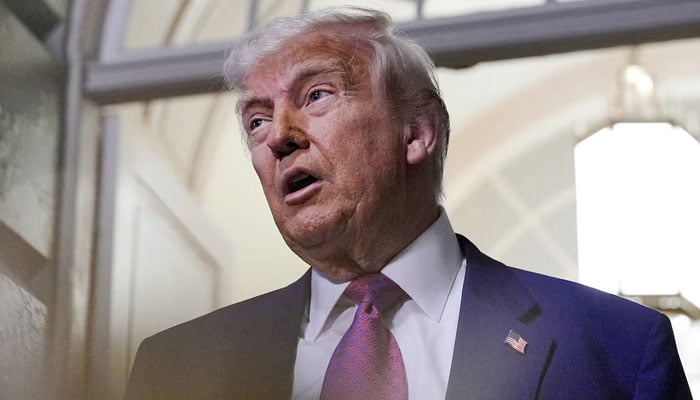
WASHINGTON: US President Donald Trump is set to imminently ask the conservative-majority Supreme Court to validate his broad emergency tariffs after two setbacks at lower courts, but will face tough legal questions as his administration presses ahead with backup plans.
Legal and trade experts said that the Supreme Court's 6-3 majority of Republican-appointed justices may slightly improve Trump's odds of keeping in place his "reciprocal" and fentanyl-related tariffs after a federal appeals court ruled 7-4 last week that they are illegal.
Trump said on Tuesday that his administration would seek as early as Wednesday an expedited ruling by the Supreme Court "because we need an early decision." He warned of "devastation" if the duties he imposed under the International Emergency Economic Powers Act (IEEPA) are struck down.
The US Court of Appeals for the Federal Circuit agreed on Friday with a lower court in finding that IEEPA does not grant the president unlimited authority to impose tariffs and the 1977 statute does not mention the term among regulatory powers it allows in a national emergency.
The ruling marked a rare setback for Trump, who has sought to re-order the global economy in the US's favor with tariffs by declaring a national emergency over decades of trade deficits.
Top administration officials, including Treasury Secretary Scott Bessent, say they expect the Supreme Court to uphold the use of IEEPA to justify tariffs, but will turn to other legal means if needed. The tariffs will remain in place at least through October 14 to allow time for the government to file the Supreme Court appeal.
Major questions doctrines
Trump's Department of Justice has argued that the law allows tariffs under emergency provisions that authorise a president to "regulate" imports or block them completely.
How far that unwritten regulatory authority goes is the biggest challenge for Trump's appeal, and two losses have led some legal scholars to predict that the Court of International Trade's original ruling against the tariffs will ultimately be upheld.
"I have a really hard time believing that the Supreme Court is going to read IEEPA in such a broad way that the President can write and rewrite the tariff code in any way he wishes, on any particular day for any particular reason," said John Veroneau, a former Republican-appointed deputy US Trade Representative and partner at Covington and Burling.
Veroneau said that the case will test the Supreme Court's "major questions doctrine", which holds that if Congress wants to give an executive agency the power to make decisions of "vast economic and political significance," it must do so explicitly.
The doctrine was used against former President Joe Biden in 2023 when the Supreme Court ruled 6-3 that he overstepped his authority by moving to cancel up to $400 billion in student loans — an order that the court said had a "staggering" scope of impact.
A key question is whether the court will apply the same standard to Trump's tariffs. Comparing these to the impact of the student loan cancellations, the appeals court said in its decision that "the overall economic impact of the tariffs imposed under the government’s reading of IEEPA is even larger still."
Split decision
Balancing this will be the Supreme Court's traditional deference to the president on matters of foreign affairs and national emergencies, an issue where the 6-3 conservative majority may come into play. Six of the seven appeals court judges voting against the IEEPA tariffs were appointed by Democratic presidents, but there were crossover votes among both parties' appointees.
"Given the Federal Circuit’s majority opinion and the dissent were quite robust, the Supreme Court will likely address the meat of whether IEEPA allows the administration to impose tariffs," said Ryan Majerus, a former senior Commerce Department official and a partner with King and Spalding.
"That decision, either way, will have significant implications for where the administration's trade policy goes next," Majerus said.
The Trump administration has already been expanding tariff investigations under other legal authorities, including the national security-focused Section 232 of the Trade Expansion Act of 1962 under which a probe into furniture imports has been launched.
Bessent told Reuters that another option could be a provision of the Smoot-Hawley Tariff Act of 1930, which allows the president to impose tariffs of up to 50% on imports from countries that are found to discriminate against US commerce. The statute, Section 338, has been largely dormant for decades but would allow for quick imposition of tariffs.
If the IEEPA tariffs ultimately are struck down, trade lawyers said that a major headache for the Trump administration will be refunds of paid duties. Majerus said importers can lodge protests at the Customs and Border Protection agency to obtain refunds, but these efforts may end up in litigation.
CBP reported that as of August 25, collections of Trump's tariffs imposed under IEEPA totaled $65.8 billion.
A source familiar with the Trump administration's thinking said that lawyers sifted through the ruling over the Labor Day holiday weekend to gauge possible outcomes and expected a quick appeal to the Supreme Court, with a final decision likely in early 2026.




